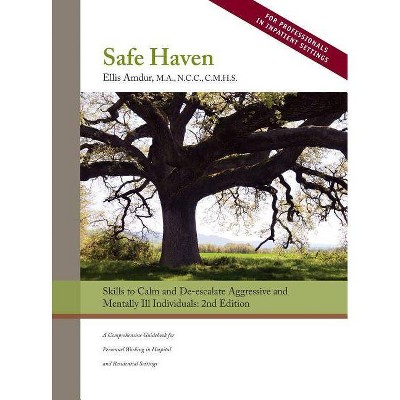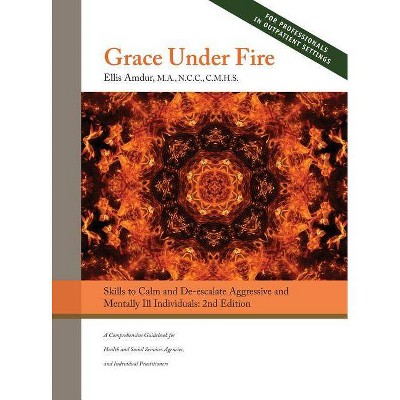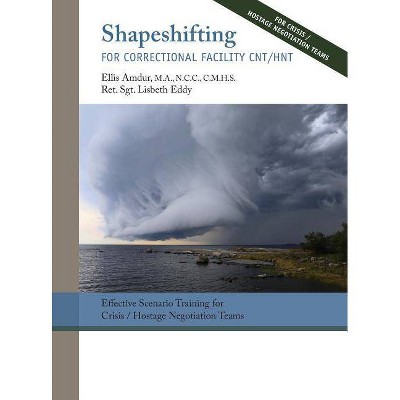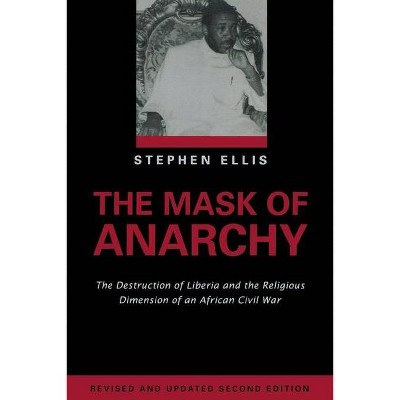The Coordinator - 2nd Edition by Ellis Amdur & Robert Hubal (Paperback)
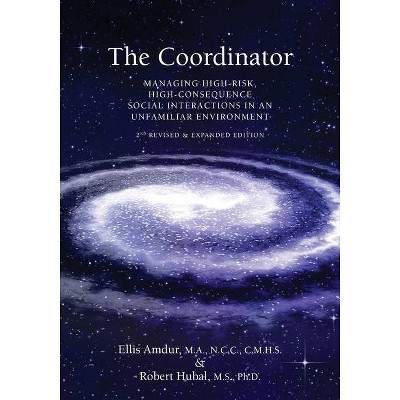
Similar Products
Products of same category from the store
AllProduct info
<p/><br></br><p><b> Book Synopsis </b></p></br></br><p>How should a law enforcement officer manage an encounter with someone who might be mentally unstable or in crisis--but does not appear to pose an immediate threat? How might a platoon commander engage with a foreign civilian who has key information for an intelligence-gathering mission, but is wary of sharing--maybe even being seen--with a stranger? In both cases, how does that officer remain prepared for something going terribly wrong at any moment, while still maintaining the intention and ability to help? What common skills do these scenarios--and many others like them--require?</p><p>In The Coordinator, Ellis Amdur and Robert Hubal share their decades of experience working with law enforcement and military personnel in training and developing social interaction skills, particularly in 'high risk, high consequence' situations with individuals who may always view themselves as adversaries. The Coordinator is someone who is always trying to reach an accord with the other person, striving to establish community liaison, rapport, crisis management, and deescalation of aggression. The Coordinator maintains a focus on tactics, doing everything possible to enhance the safety of all people involved in the encounter. Simultaneously, the Coordinator strives to achieve a level of trust, engaging others with professionalism and respect. The Coordinator crafts the communication to form a working relationship to share in achieving the aims of the mission.</p><p>"I have known Robert Hubal for many years, starting as a colleague at RTI International, and continuing to other training and educational efforts involving military and law enforcement. The Coordinator, a result of his collaboration with Ellis Amdur, offers a clear approach to confrontations with adversarial, potentially dangerous individuals. This 'Coordinator Mindset' focuses everyone involved on both the problems and resolution of an incident. From my over 40 years of service in the military and then in law enforcement, as well as my studies on interviewing and effective methods for training interviewing skills, I see these skills as valuable in military personnel at various levels as well as in the law enforcement and intelligence areas. This is a great book to have around to aid in achieving the best solution possible, while lowering the risk of the encounter turning violent, without compromising the military or law enforcement mission that brought one into the situation."</p><p>- Dr. Don Gemeinhardt (Col. USAF Retired)</p><p/><br></br><p><b> Review Quotes </b></p></br></br><br><p>For half my military career, I served in the U.S. Army as a Ranger-qualified Infantry Soldier. We trained continuously on one thing--how to close in with and destroy the enemy on any terrain: in the jungle, the desert, the mountains, or urban areas. For the second half of my career, I decided to try out for the U.S. Army Special Forces. I wasn't quite sure what the Special Forces did; I only knew they were the ones who conducted operations that no one heard about.</p><p>I retired from the military a couple of years ago and during one of my <em>aikido </em>classes, the instructor recommended that I read Ellis Amdur's book on the internal strength of the martial arts entitled <em>Hidden in Plain Sight</em>. My instructor also told me that Mr. Amdur participated in a study and, with Dr. Robert Hubal, co-wrote a book entitled <em>The Coordinator</em>, on why Special Operations Soldiers are successful in unknown environments. Of course, I had to read it.</p><p><em>The Coordinator </em>covers a good portion of what's taught in the Special Forces Qualification Course: the Q-course. As I stated earlier, the U.S Army Infantry is proficient in fighting and is prepared to do so on any terrain. The Special Forces Soldier is also prepared to fight in any environment, but he is primarily trained on how to think. Early in the Q-course, the cadre focuses on the 12 SOF Imperatives, and using them as a tool to guide your thinking and decision making. The 1st Imperative is how to Understand the Operational Environment. Of course, in just about every military school I attended, the instructor would tell the class, "We will teach you how to think, not what to think." That wasn't always true, but it was definitely so for the Q-course. Critical Thinking was taught, and the Special Forces student had to apply it to every scenario or training event in the Q-course. Students were placed in chaotic environments and had to quickly think through a problem, formulate a course of action, and implement a solution in order to deescalate the situation and regain order. The natural decision for most students was to fall back on their early training, and use the kinetic, or heavy-handed approach. Every time that decision was made, the situation would get worse. The cadre would tell the students that they must always be thinking about a solution with the least negative implications. During a training exercise or real-world cata- strophic event, your body can sense when a situation is getting bad. During a firefight, you can feel changes in your body along with the increased stress.</p><p>Adrenaline will surge through your body along with a cortisol dump. If you don't know how to control this surge, there's a possibility that some people will shut down. They will freeze. You must understand what's happening and force yourself to regain control of the situation. Amdur and Hubal explain some things you can easily do to calm your emotions and regain control of the situation. The breathing exercises covered in the book are very effective when coupled with the proper mindset, preparation and training.</p><p>I currently work as a military contractor, facilitating training for the U.S. Military. <em>The Coordinator </em>is part of my library, along with military doctrinal manuals, that I use for reference during training exercises. It took several years in my Special Forces career to fully grasp what I learned from the Q- course. As I told Mr. Amdur when I first spoke with him, I wish that I had read his book before I went through the Special Forces training. I would have understood what the training was designed to do, and how to maintain my composure in a high-tension ambiguous situation much earlier.</p><p>Manny Acosta<br /> MAJOR, SF, U.S. Army (Ret)</p><br>
Price History
Price Archive shows prices from various stores, lets you see history and find the cheapest. There is no actual sale on the website. For all support, inquiry and suggestion messages communication@pricearchive.us
